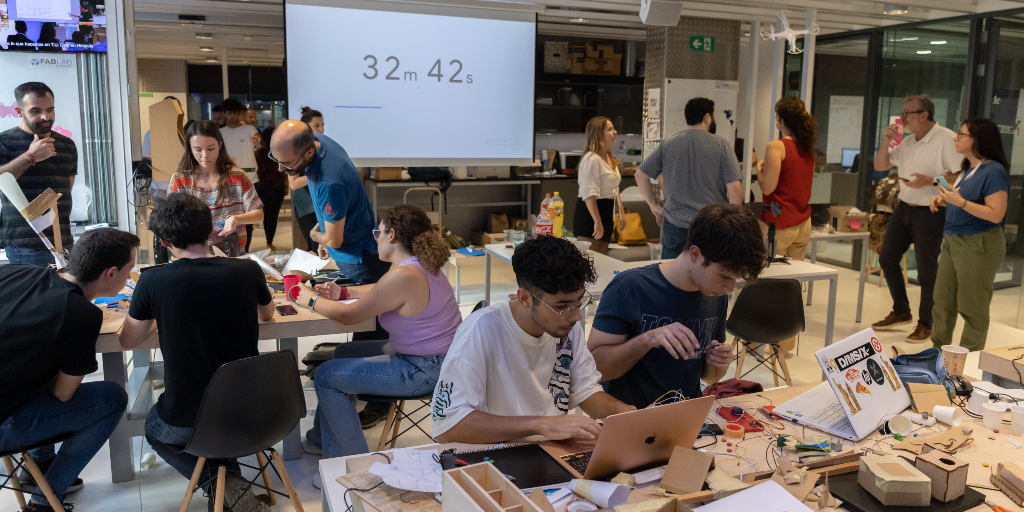CBI-FP programme: bridging innovation and societal impact through multidisciplinary collaboration

The CBI Fusion Point (CBI-FP) programme exemplifies the innovative spirit of multidisciplinary collaboration in higher education, addressing real-world challenges with a focus on societal impact. The Challenge Based Innovation course was established in 2014 and is a joint effort by Esade Business School, IED Barcelona and Universitat Politècnica de Catalunya (UPC). It focuses on real-life societal challenges based on the United Nations Sustainable Development Goals (SDGs) and uses a range of methodologies from Design Thinking and Systems Thinking to Challenge-Driven education and Experiential learning, fostering an environment where interdisciplinary teams can co-create meaningful innovations.
The CBI-FP targets students from the three partner schools, and it is concentrated on challenges related to the SDGs, integrating cutting-edge technologies developed under initiatives like ATTRACT to drive its problem-solving processes. Over 14 weeks, students work in multidisciplinary teams supported by expert coaches from the three institutions and engage with scientists, industry professionals, and target users. This collaborative approach is enriched by immersive trips to CERN, where participants gain hands-on experience with advanced research and technological applications.
“CBI is truly a life-changing experience for students. It offers them unparalleled creative freedom in a unique setting where they collaborate in interdisciplinary teams. With access to resources, expertise, and knowledge from an exceptional network of faculty and partner institutions, including CERN, students work alongside top researchers from the ATTRACT projects. Together, they explore innovative applications for cutting-edge technologies, aiming to create meaningful solutions to societal challenges aligned with the SDGs”,
explained Mireia Sierra, coordinator of the CBI-FP project.
“Beyond the impressive projects themselves, the most valuable takeaway for students is the experience, through learning by doing, they develop new skills and apply the knowledge they have gained during their degrees, pushing their boundaries and preparing them to tackle real-world challenges with creativity and collaboration”, added Sierra.
The programme’s non-linear learning journey emphasises adaptability, exploration, and iterative processes. Innovation outcomes cannot be predetermined, challenging students to navigate uncertainty while employing human-centred methods to find impactful solutions. This approach not only deepens their technical and creative skills but also cultivates a mindset aligned with collaboration and societal responsibility. It really helps to develop soft skills by putting them into practice such as working in multidisciplinary teams, leadership skills and the empathy needed to create solutions for societal problems that need a deep understanding.
Over the past three years under ATTRACT phase 2, this programme has engaged 71 students from more than 15 nationalities, developing 13 solutions that tackle health, air pollution and water contamination through the use of six ATTRACT technologies. Throughout this process, students were guided by 12 faculty members and coaches from diverse backgrounds and approaches.
Here you can watch a video of the CBI-FP programme:
For additional information about the programme, visit here.